The Best Stories Make Offers We Can't Refuse
Great Stories Feed Your Soul and Take You Up To The Mountaintop
Inside a great story, there’s another which makes us stay and start something new.
Years ago, I was a kid up late with Dad while he watched “The Godfather”.
I fell asleep, not understanding it. Dad worked two, sometimes three, jobs, and this was his way of spending time with me. Much later, I read the book, and then the movie. I rediscovered what Dad saw. This story’s keystone was family.
Several stories unfolded inside the book: a family fighting to survive in a world of crime, power, and violence; the youngest of three sons, and an accidental heir to a throne, struggling between aspiration and obligation, and between his two loves, his woman and his family. The “family” wins but there is a cost.
And now something new, another story, has brought me back in, long after I got out.
There was a story, hidden inside about a movie based on a book, its production.
This is about “The Offer”, a series about the behind-the-scenes story about the film adaptation of Mario Puzo’s “The Godfather”.
“The Offer”, a series from Paramount (the name of the same company which made the film), is a dramatization of the story of the making of “The Godfather”.
It’s about the people who made that movie possible in the first place, the producers.
Marlon Brando and Al Pacino are secondary figures, barely a word from James Caan, none from Robert Duvall, Talia Shire, or most of the now historic cast. It’s not about them, it’s about what it took to bring them together to make a movie. It’s about the people who see a story inside sources like books, and turn them into new stories.
Sometimes we need an outsider to tell new stories, everybody else is telling old ones.
The lead character is an ex-architect, raised by a single mom, turned computer programmer at the Rand Corporation, who became the creator of a 1960s hit television comedy, set in of all places a Nazi P.O.W. camp, “Hogan’s Heroes”. Al Ruddy.
It’s also about two colorful and legendary executives, Robert Evans, and his boss, one of Corporate America’s business titans, Charles Bluhdorn. Both Evans and Bluhdorn’s lives are well-documented so I won’t get too much into their bios.
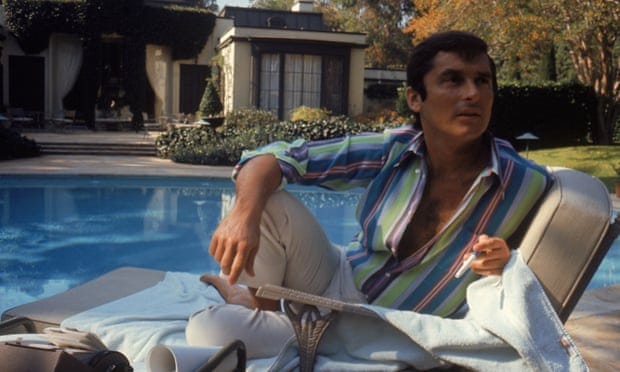
Evans was an actor whose real talent was leading others to make movies, and revived the fortunes of an ailing film studio, Paramount. He oversaw the making of films that are a part of cinematic history, including “Rosemary’s Baby”, “Love Story”, “Chinatown”. There were bombs but the winners shined brighter, all was forgiven.
Paramount was a subsidiary of “Gulf and Western”, a/k/a “Gulf + Western”, a conglomerate of industrial and media businesses, founded by Charles Bluhdorn. True to its name, its logo is a mountain. You still see versions of it when a movie begins.
Charlie Bluhdorn, born Karl Georg Blühdorn, came from Austria to go to CUNY and Columbia, left to work at the NY Cotton Exchange, and started a company at 23. Millionaire by 30, he built a conglomerate, and sparked the tourism industry in the Dominican Republic. Gulf + Western owned industrial businesses but also media companies, such as Desilu (maker of “Star Trek”), Dot and Stax records. (Lots of music history was created at those record labels, but that’s another story.)
Last but not least, this meta-story includes creative legends Francis Ford Coppola and Mario Puzo, now remembered as legendary directors and writers but it’s early days yet.
All of this is happening in the backdrop of a real underworld taking exception to it all.
Joseph Colombo, newly minted head of an underworld “family”, a seat-holder in the “Commission”, a governing body within this underworld, wants to stop the movie. He, with Evans and Bluhdorn, vetos in pockets, stand between Ruddy and the movie.
A reminder and word of warning, I am not writing a critique about “The Offer”.
None of this is authoritative.
I’m rifling through scenes, riffing about what hits me.
The series took creative license with history but it’s a story.
I’m also taking license, using quotes of dialogue, in bold, because this is my story.
It’s about a story within a story within a story.
It’s about a production of a movie adaptation of a book.
It’s about a creative struggle in a world controlled by competing desires.
To keep it straight in my mind, I’m going to mix it up, improvising and rearranging.
The Pitch
Al Ruddy, in corporate white shirt and tie, sleeves rolled up, is flipping through a magazine at his large drafting desk, bored inside the bowels of The Rand Corporation. His supervisor, also wearing a white shirt which comes with a managerial frown, berates him with a “where is my report” chiding. Ruddy replies that his report has been ready since early morning. Al can’t wait to GTFO.
His escape can’t happen soon enough to suit an achiever bored among the suits.
There is a brief escape, thanks to a party at LA hotspot Chateau Marmont.
Ruddy meets an actor who sees that Al “gets it” and has his own POV too.
Al, with some Rand left inside, sees a story engine and broke it down:
"The way these shows tell their stories, it’s like a formula, in a good way….
They’re the same cast of characters in similar kinds of situations, with just enough difference to be interesting. If you really want to upset the apple cart, put your cast of characters where you least expect them to be in a comedy, somewhere where it isn’t safe, that’s how you make it stand out.”
Ruddy’s new actor friend, Bernie, impressed and begins to teach him the ropes.
The first lesson is “the pitch”.
It’s the headline, the 5 minute speech in an elevator, the pickup line, a messy jotted down notion, or a things you say in a boardroom to win over the CEO. The “why”.
If you give someone the right reason “why”, then you’ll get their attention. In television that could mean a 100 episode deal.
Al and Bernie, after coming up with an idea, walk into CBS HQ with Plan A in mind.
Plan A is a “safe” idea, sell a comedy about Rand-type consultants who come up with ideas to make peace not war. It’s quirky-ness comes from being set in the era of the Vietnam war.
“Anything else?” asks media giant William S. Paley.
Ruddy dives in with the “risky” Plan B, a comedy, set in WW II, about an American POW and his buddies running circles around hapless Colonel Klink. Iterating on a military hit comedy, called “Bilko”, Al decided to push it back in time to WW II.
CBS buys Plan B, which becomes a hit, “Hogan’s Heroes”.
The Epiphany
On its face, it seemed like preemptive career suicide to pitch a comedy set in a Nazi camp, for a war that was still in living memory, with Vietnam in the background, but a good pitch can be just an old story told to the right audience in new clothing.
After a while, Ruddy, his girlfriend, the owner of the Chateau Marmont (who he met at that party) watch Charlton Heston wail “Damn you to hell…” Al sees how a movie can move minds. He’s reminded of when his stoic single mom was moved to tears, which never happens most of the time, by a movie.
By the time the movie fades to black, Al realizes he’s found his real “why” for running away from Rand. He wants to inspire even stoics to express profound emotion.
He’s done with his comedy show. He wants in on movies because he’s got his “why”.
Free of the curse of knowledge, his default is yes, do it.
Al drives onto the Paramount lot, introduces himself to Evans with a cold face-to-face self-introduction. Surrounded by suits, Evans sees a kindred thick-skinned spirit.
A ton of “I’m going to get it done” and mistakes are about to unleashed by Al Ruddy.
A Writer’s Hell Freezes Over
It’s another cold as hell New York City winter and Mario Puzo walks, defeated and deflated, from his book signing. He poured his love into an homage to his mother, “Fortunate Pilgrim”, and less than a handful of readers showed up, aside from his fashionable publicist/publisher. Nobody bought a copy. Respect but no love.
She points out they did like something in the book, about “the Mafia guy”. Three paragraphs. She takes a yellow club to “21 Club” and Puzo is trying not to drown.
Puzo, mortified and terrified, is left with one bit of advice, “write what you know”.
His bookies sent someone to give him a reminder about money he owes. A lot.
“Fuck art … start typing,” commands Mrs. Puzo, abandoning artistic integrity in the face of the bookies’ undeniable collection skills. Puzo still can’t bring himself to write about killers to keep from being killed himself. How can he write about a world he distanced himself from?
His wife gives the feedback which helps: “They worry about their kids’ futures, just like the rest of us…. Maybe this book is finding the reason they would [kill].”
Just like “the pitch”, the book, the movie, the whatever, a story has a “why” that connects with its intended, like a mash note to a crush the opens the door for more.
Puzo finds it, dances in his home office with his wife, he’s got his plot, and what drives it, its “why”, and a title.
The Godfather.
First You Do The Book, Then You Get The Money
The book is a hit, Hollywood takes notice. Media mogul mimetic desire takes the wheel but who will greenlight it? What’s the why? And it better bring in bucks.
Evans receives his corporate sovereign, Bluhdorn. Evans wants to make a movie of The Godfather but Bluhdorn’s suits flag the book as another future flop to dump on another studio. A rival, legend Jack Warner, offers to take it off their hands like they were at media garage sale. Warner’s $1M offer for Paramount’s $15K option delights but Bluhdorn plays the power game and tells Warner that he’ll think about it.
Evans makes his final pitch that Paramount will make far more money. Done.
An Epic Line For Eternity
Ruddy, reeling from the box office failure of his first film, meets with Evans and braces for the end. Instead, he’s been charged to produce “The Godfather”, which he hasn’t read but when asked says he did. (If you were in his shoes, you’d do the same.)
Al has to pitch Paramount’s master, Bluhdorn, in New York. After reading the book on a red-eye flight to NYC, Al struggles to come up with a pitch, a “why” that will push a financial master of the universe to say yes. He gets advice, from Bettye, his right hand at Paramount, about his meeting with the master of Gulf + Western.
The advice is Bluhdorn speaks like a telegram. Make your words count.
The pitch is a story inside a headline. What is it, what sounds, what feels right?
Is it a Greek tragedy? Is it a story of immigrants? What to say?
“I am going to make an ice-blue, terrifying film about people you love.”
Done. Ruddy is the Producer of The Godfather.
One more pitch (actually three pitches)
Ruddy has to hire a screenwriter. He wants Puzo, which is the exact opposite of the rules (never hire the author of the book you’re turning into a movie) but Ruddy doesn’t suffer from the curse of knowledge, and he meets with Puzo.
Puzo, understandably, insists he can do it. After all, he wrote the book. It’s his story. Novels are not screenplays however. There’s a deadline, a budget. There’s reality. Puzo hits a wall. The same as any other writer. Fear and doubt take over.
Ruddy finds another writer to rescue Puzo, Francis Ford Coppola.
Coppola, despite his success after writing the screenplay for “Patton”, is in career limbo and needs money. He, like Puzo, is repulsed by the surface level part of any story associated with organized crime and the Mafia but Ruddy gets him to imagine, and peer deeper inside as he describes entire scenes from the book to conjure images inside Coppola’s cinematic mindscape. Done.
Al has Coppola ambush Evans with a the right pitch, about why he not only wants to co-write the screenplay, he wants to direct it. Coppola wants, as an Italian American, to do justice to a story about an Italian American family fighting for survival, justice, and family. Done.
The Pushback
So far so good. Evans is in, Bluhdorn is in, Puzo is working with Coppola. Done right?
The movie could be great, after all if the pitch worked, nothing can go wrong. Wrong.
The suits want to give more of the same, they want to do Plan A, comfortable idea and toe the line, and avoid Plan B, push those lines out, challenge and elevate the audience.
Corporate says the studio made a fortune with “Love Story”, give them more of the same (which they did in real life with a sequel), be safe, do more of the same stuff.
Money means worry and it mumbled:
We can’t give this movie to a guy who did a low-budget biker movie and a tv comedy. We should sell more of what the audience already saw, more means more.
Maybe we should sell Paramount and get it off of Gulf + Western’s hands.
There’s more than just Gulf + Western making noise about what they want.
You would think a pitch for money and producer control was enough. You can set up offices, scout locations, but there’s still the matter of the script and the cast.
Evans was livid at the length of the script, but Coppola is brought in to fix it. Then Evans hates the choice of a new promising young actor for a critical role that Francis Ford Coppola wants. Bob already caved in when Coppola got an impossible “get”, for the role of “the Don”, Marlon Brando. Evans wanted an established star for the role of the Don’s youngest son, “Michael”, not some rookie.
The battle for the future of young Al Pacino has begun.
There’s more.
Ruddy wins over Joe Colombo, and avoids the ire of Colombo’s new civil rights association, “the League”, but Al is walking a fine line between Hollywood and the Underworld. The “Commission”, Frank Sinatra, and a NY politician, Mario Biaggi, riding on public perception about a book it never read are also in the mix.
Team Ruddy is trapped between Gulf+Western and the Underworld.
Rock meet hard place.
The Payback
Bob Evans is so consumed 24/7 as the head of Paramount, he’s blind to losing it all.
Bob plays political chess with the suits at Gulf + Western, but he needs another hit to showcase his genius and placate shareholders, and he’s ignoring his marriage to actress Ali McGraw. Bob is one of the princes of Hollywood but his kingdom is in danger of being taken over.
Bob’s big bet on “The Godfather” has also taken unexpected turns.
His producer Al Ruddy has done exactly what he was told to do, to do anything it took to make the movie. He didn’t count on his orders being defied as part of that bargain. Ruddy went over Evan’s head, went straight to Bluhdorn, twice, to get Brando and Pacino, despite Evan’s orders to forget about casting them. More salt in the wound, is Ruddy has to hire back Pacino from another production.
Then his guy Ruddy has inadvertently made it look like Paramount is in bed with the organized crime, thanks to Joe Colombo’s promotion of the “League” as part of his support of the movie’s production in NYC.
Bluhdorn is furious and fires Ruddy.
Here is the ammunition that Gulf + Western’s suits use to push for Paramount’s sale.
Bob’s kingdom is coming apart at the seams.
It’s time to save Paramount from being sold, with a story.
The Pitch For Paramount’s Soul
Evans flies to New York. The Gulf + Western board are meeting to discuss the sale of Paramount. He crashes an emergency board meeting to sell Paramount (which would have derailed every project, including “The Godfather”).
Not so long ago, Ruddy crashed Evans’ office to pitch his first movie deal, which flopped but he got a second chance with the Godfather movie. Evans is going for a second chance with Paramount.
Bluhdorn, big on money and not on decorum, lets Evans pitch.
The Pitch That Saves Paramount From A Firesale (with edits):
The last few years have been rough,
Should you sell short or go long, I understand that
You’re worried about your reputation
Take a look around this table
None of you are sitting here by playing safe
And you know that the most important tool in all your pursuits is loyalty
You want to create a deep relationship
You want to create trust and love
But you can’t do that with empty promises
But you need to feed their souls
How? That is hard
The Soul of America is broken,
war, assassination, civil rights protests
we’re hurting, we’re hurting
people are having a hard time in these times
People don’t trust politics or big business
What can they look up to?
Paramount, take a look at the logo, we’re the mountaintop,
we’re the goddamn Statute of Liberty
You can give us your tired, your poor, huddled masses yearning to breathe free
We’ll give them 2 hours of respite from the harsh realities of this world,
complete with popcorn and Coca-Cola
We’ll do what other people can’t, we’ll entertain them
We’ll give them escape
We’re feed their souls until they’re fit to burst
Last year we made 100 million, and fed the souls of America
you might have said you only get lucky once,
We make our own luck
Last year we made a hit with the second best selling book
What’s the first selling book? The Godfather, and we have it
The biggest selling book of all time is ours
We can feed their souls,
We know what people want, more than sugar or auto parts
They want STORIES, they want escape, they want love
Bluhdorn relents. He turns down a bargain-hunting Texan’s offer, in colorful language.
Evans has saved his kingdom from being sold. His marriage, however is another story.
The Only Story That Works (Most of The Time)
Ruddy is rehired but Evans, despite his rescue of Paramount, is in freefall again.
His wife has left him for Steve McQueen, the other guy she tells you not to worry about, and Bob amps up the drugs. He’s gone M.I.A.
Ruddy convinces Bluhdorn to let him rescue Evans from self-destruction.
The only story that works, when everything is on the line is truth.
Both men confess to their failures in their personal relationships.
Ruddy leaves Evans with his thoughts in his mansion’s personal theater.
Something happens in the middle of Evan’s mind that night.
Before Paramount is taken over by a suit, Evans comes in to tell them “why” he belongs back at the helm, because he knows what to do to make great movies.
The suit wanted to cut the run-time of the movie.
Evans, sobered up and in sharp double-breasted navy, barges in as a Gulf + Western “suit” is going over the details with Bluhdorn, down to really bad movie posters.
Evans zeros in on the posters, and tells them what’s wrong with them, and what’s right with Coppola’s “too long” director’s cut.
The Pitch That Saves Coppola’s longer cut and vision of The Godfather (my edits):
The audience doesn’t care about our business.
Look at this poster from corporate,
It doesn’t create mystery, intrigue,
it doesn’t allow them to connect to it
This is not a typical movie
We’re not offering them a transaction,
We are offering them an experience
We need to evolve with the population,
We need to lead a revolution or it will pass us by
These movies,
they break all the rules, they’re not formulaic
This is part of why they work
We can’t chase after what we think the audience wants to see,
we need to show them what it needs to see.
Later, on the Paramount lot, Charlie talks to Bob.
Bluhdorn:
I like movies about history, did you know that?
we get to see something which is impossible for us to see,
and the story is retold to be whatever we want it to be,
some people thinks that’s a crime but I don’t
Rewriting history, maybe that’s how we can deal with history
If you could rewrite your history, would you?
Evans:
No, it may not be pretty but it’s mine.
The Payoff
Ruddy and team get the film across the finish line, straight to the premiere.
Evans gets Kissinger and his “ex” Ali McGraw, to join him at the grand event.
It’s a smash hit. Puzo’s back at the premiere. He’s already been paid $1M USD for a 1 page treatment for a movie that will make you believe a man can fly. Superman.
They want everyone at Team Ruddy to do a sequel of the Godfather already.
No. Ruddy’s moving on, some project with another rising star, Burt Reynolds,
another impossible pitch, it’s a football movie … but it’s set in a prison.
Evans wants to make a movie about water in California, and is looking at Jack Nicholson, it’s called “Chinatown”.
Time for a new story.
Why did I write so much about a series most of you never saw or care about?
It’s not true, it’s just a dramatization, you say, worse, a story of a story.
Well, a great story has more truth in it than any facts borrowed for it.
There’s more truth in a work of art than what lives in its paint or parts.
I think about stories and storytelling. There’s new toys that will be tools to tell them.
I thought about what writing one book and finishing up another has done for me.
If you’ve read my earlier pieces, from just the other week, this first week, you understand what’s at stake, I’ve found myself again and now I’m making myself.

I’ve searched for the words to describe “why”.
I found them after writing them.
You have to take the lead and challenge people.
Feed their souls.
You lead them up to the mountaintop.
Here’s a link to director Francis Ford Coppola’s “wish list” for the actors he wanted.
Sometimes you have to start with a wish list and figure things out to get it done.


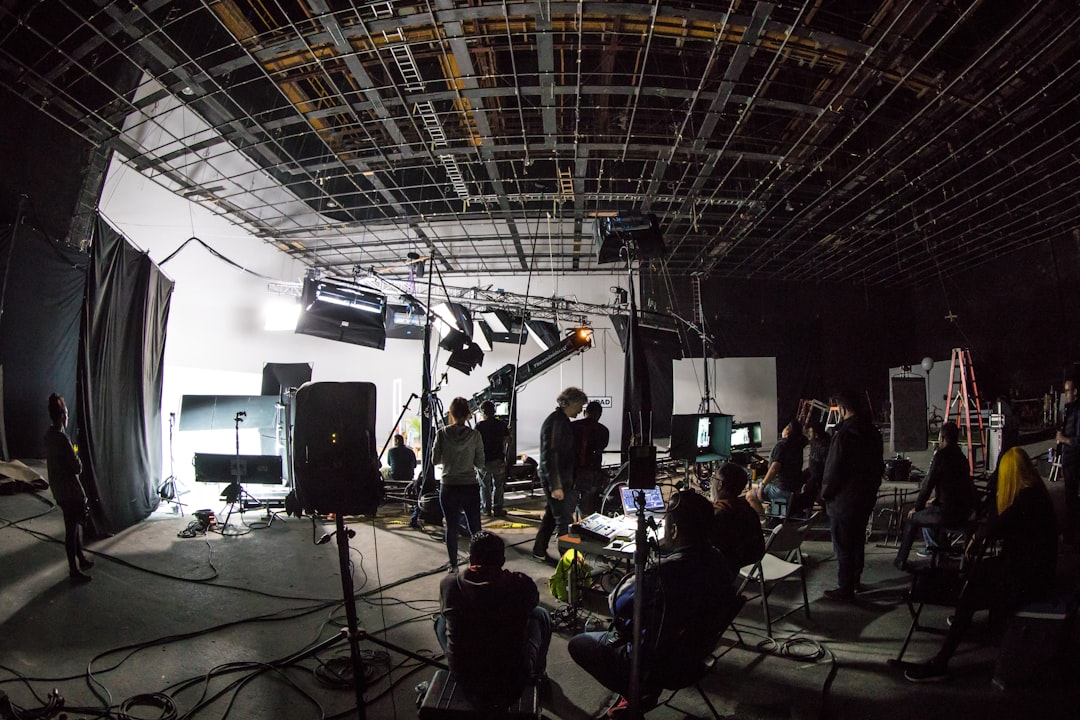


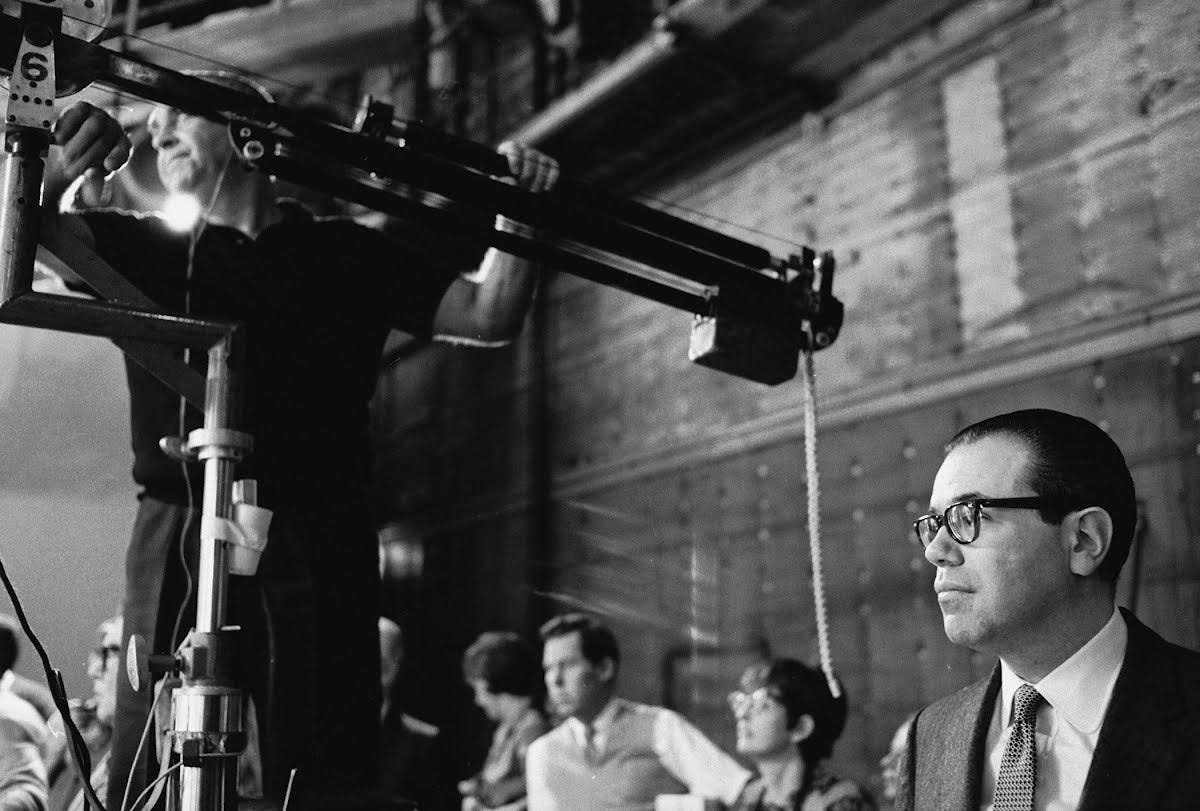
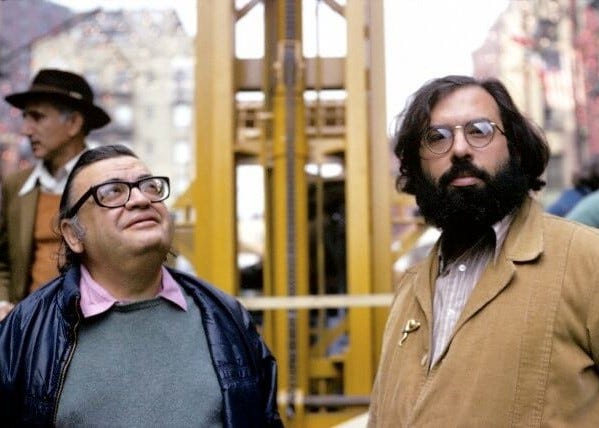
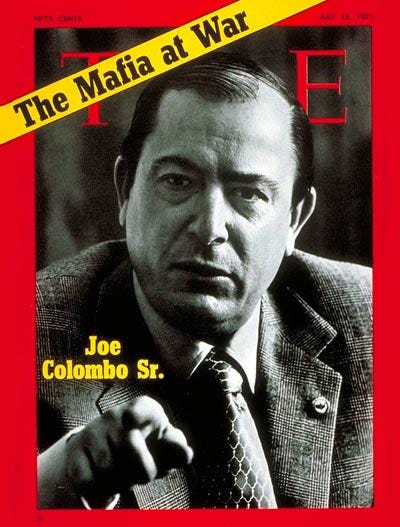



I loved the story. Great write up, you capture many of my highlights here. Cheers 💚 🥃
Great read! I've always been in awe of how a production with so many moving parts could somehow graze perfection. There is only one Godfather, and maybe a few other movies of its caliber, so perhaps there are a few tangible lessons other than luck that can be extracted, but its always great to explore (especially through your experimental style) how something like it could even come to be.